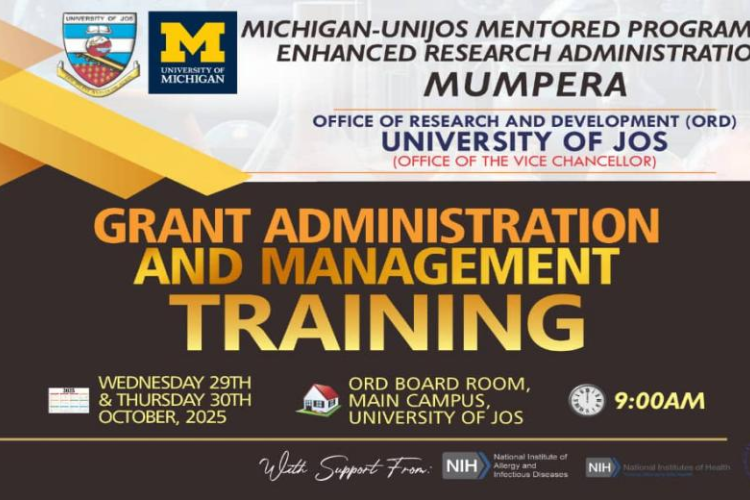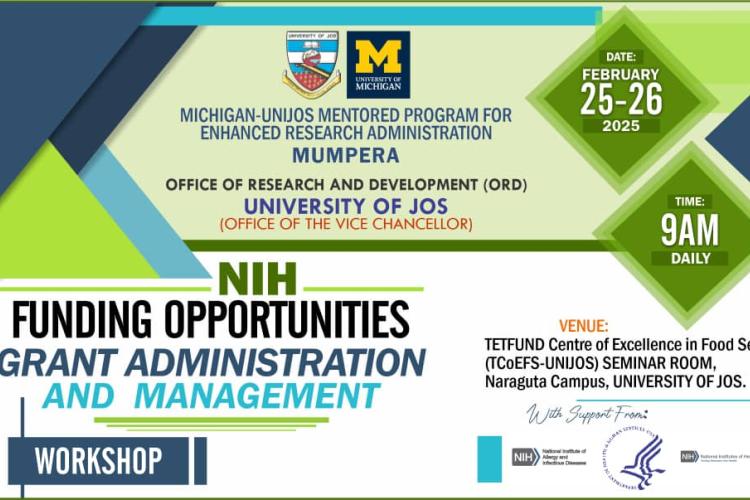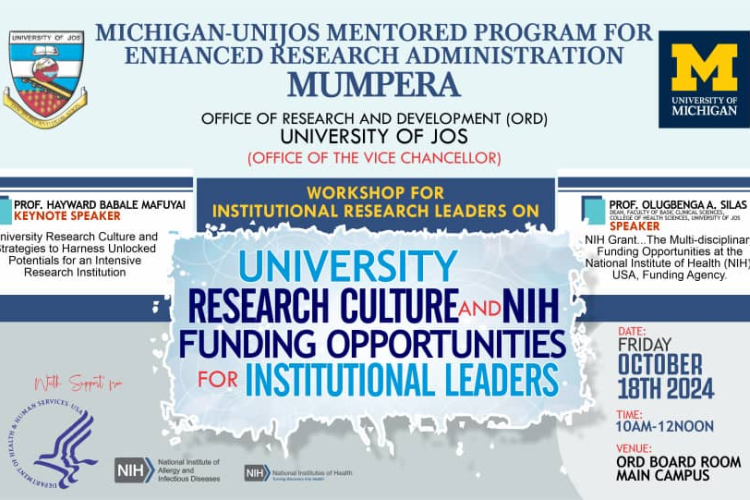Vision
To be a leading department in plant science and biotechnology, recognized for excellence in teaching, research, and community engagement. We envision a future where our contributions lead to improved food security, sustainable agricultural practices, and environmental resilience on the Jos Plateau and across Africa.
Mission
To cultivate a thriving center for education, research, and outreach in plant science and biotechnology, addressing the critical agricultural challenges of the Jos Plateau region and beyond. We aim to empower students with the knowledge and skills to become the next generation of agricultural leaders and innovators.Mission
To cultivate a thriving center for education, research, and outreach in plant science and biotechnology, addressing the critical agricultural challenges of the Jos Plateau region and beyond. We aim to empower students with the knowledge and skills to become the next generation of agricultural leaders and innovators.
Core values/Philosophy
Education: We believe in providing a rigorous and relevant curriculum that equips students with the scientific foundation and practical skills necessary to excel in plant science and biotechnology careers.
- Research: We are committed to conducting impactful research that addresses the specific challenges faced by Jos Plateau agriculture, such as drought tolerance, soil fertility, and pest resistance.
- Outreach: We believe in fostering collaboration with local farmers, policymakers, and stakeholders to ensure our research translates into tangible solutions for the Jos Plateau community.
- Sustainability: We emphasize sustainable agricultural practices that promote food security, environmental health, and economic prosperity for future generations.
- Social Responsibility: We strive to contribute to the social and economic development of the Jos Plateau region by creating job opportunities, promoting innovation, and fostering a culture of scientific inquiry.
AIM AND OBJECTIVES
The Aims of the programme are to:
- Equip the undergraduate students with a sound knowledge of the fundamental principles and modern biotechnological methods involved in the study of plants and plant products
- Equip our graduates for gainful employment in the diverse fields of plant biology and biotechnology such as, Agriculture, Plant Breeding, Genetic engineering, Forestry, Horticulture, Pharmacology, Pharmacy, Medicine, Microbiology, Criminology, Environmental Management, Geology, Information Technology and even Statistics.
- Equip our students with entrepreneurial skills for productive safe employment, research and nation building in areas plant resource utilization and biotechnology.
The specific objectives of the course are to:
i. Provide foundation training in the basic knowledge and skills in plant Biology and plant bio-resource utilization.
ii. Teach the application of good and modern scientific techniques and methods applicable to the fields of biotechnology
iii. To inculcate through teaching and research an indebt knowledge of the unique crops characteristic of the Jos Plateau such as acha (Digitaria exilis L.), Irish Potato (Solanum tubersum L.), Mangu bean (Phaseolus vulgaris L.), and Rizga (Plectranthus esculentus N.E.Br.), etc.
iv. Produce graduates with skills and techniques that will make them potential managers of nature resources.
v. To train students who will contribute to the economy of Nigeria through the knowledge of plant biology and biotechnology.
A. Undergraduate programmes
B. Sc. (Hons) Plant Science and Biotechnology
B. Postgraduate programmes (MSc)
Masters in the following areas
- Phycology and Aquatic Plants
- Plant Physiology
- Plant Anatomy
- Plant Ecology
- Plant Pathology
- Plant Taxonomy and Systematics
- Medicinal Botany
- Cytogenetics and Plant Breeding
- Applied Microbiology
- Plant Biotechnology
C. Postgraduate programmes (M.Phil/PhD)
M.Phil/PhD Programmes in the following areas
i. Phycology and Aquatic Plants
ii. Plant Physiology
iii. Plant Anatomy
iv. Plant Ecology
v. Plant Pathology
vi. Plant Taxonomy and Systematics
vii. Medicinal Botany
viii. Cytogenetics and Plant Breeding
ix. Applied Microbiology
Plant Biotechnology
BRIEF DESCRIPTION OF THE POSTGRADUATE PROGRAMME
The Department’s postgraduate programmes are designed to encourage and promote the training of students in all aspects of Plant Science and Biotechnology. The students are expected, at the end of their programme to become conscious of their environment and appreciate the delicate balance between plant life and the existence of the Earth. They are expected to become highly knowledgeable in the new frontiers of biotechnology as it relates to plants, the primary producers in the universe. Above all, it is the core goal of the department to produce graduates who can relate to the needs of the society through their knowledge and application of the amazing facts of plant life and products, and biotechnology.
The postgraduate program aims to equip students with comprehensive knowledge and research skills in various aspects of plant science. It offers both Master’s and Ph.D. degrees, allowing students to specialize in areas such as plant genetics, plant physiology, plant pathology, plant ecology, and biotechnology.









